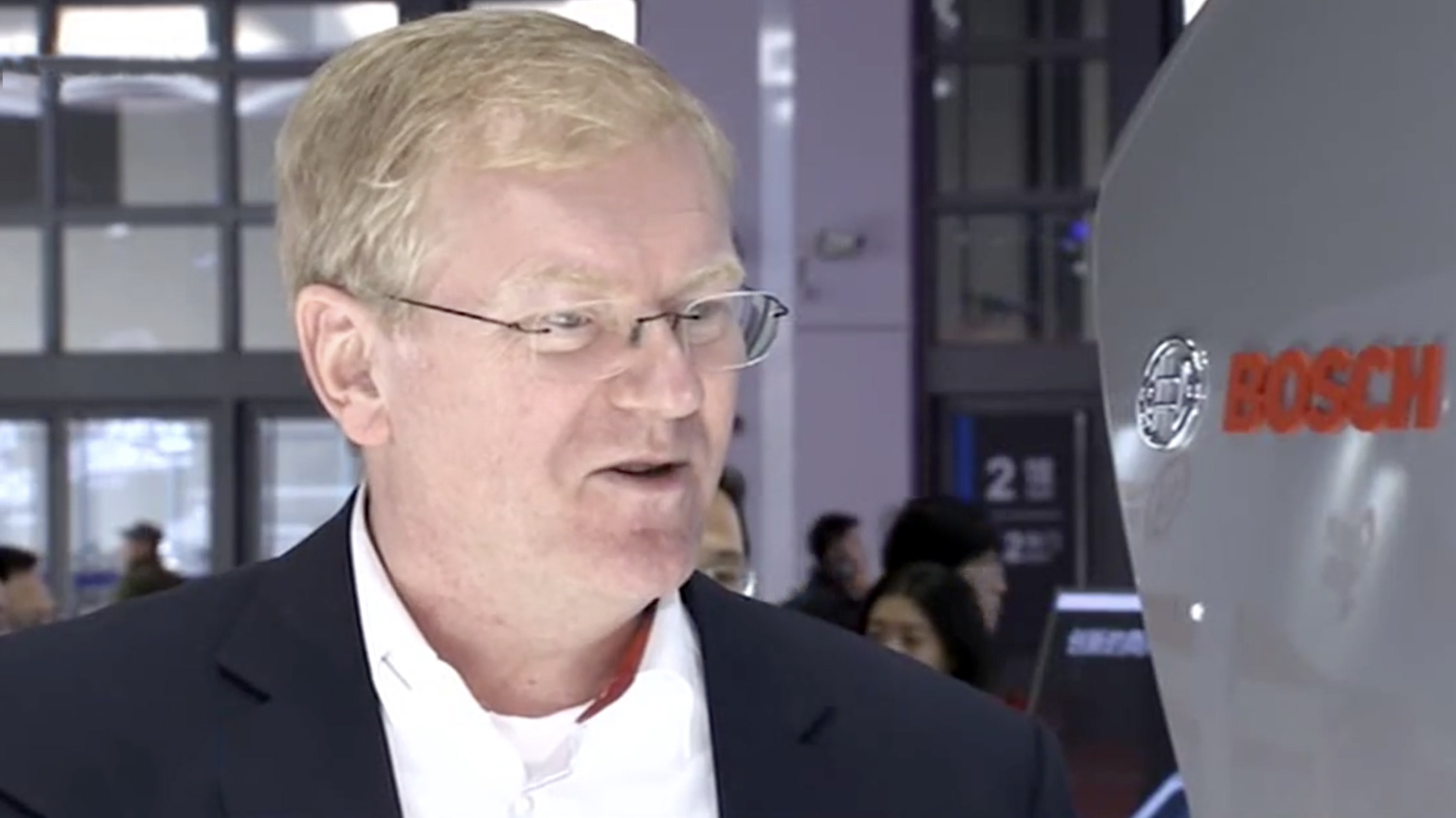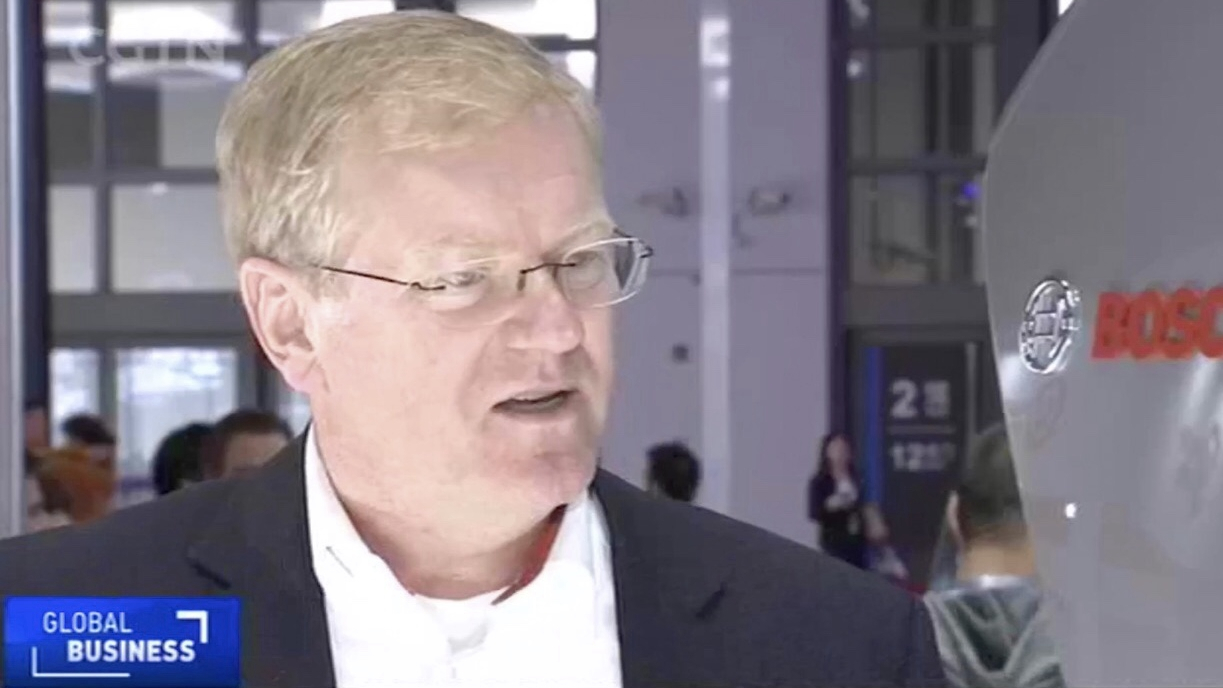
Biz Analysis
17:44, 20-Apr-2019
Bosch sees China's auto market far from being saturated
Updated
10:53, 21-Apr-2019
CGTN Global Business
02:35

The world's largest auto parts maker Bosch sees China's auto market far from being saturated, and with more opportunities in mobility solutions than anywhere else.
"Last year, we still grew at about 2.9 percent. So we are still on a positive track," said Stefan Hartung, a board member of Bosch.
Bosch will continue to invest heavily in the country, based on remarks of Hartung. The company just set up a factory in Nanjing, the capital of East China's Jiangsu province, and plans to establish a new factory for powertrains in the world's second-largest economy.
"We are still in the mood to invest further into this market and further have supply ready for this demand," Hartung noted.
He thought that the trend of car-sharing would not hinder auto sales since car-sharing means more usage of vehicles which would bring more replacements. And he expected that the number of cars will probably rise in China as "there's a lot of room for more cars," adding that the numbers would not be as "super high" as those in the United States or in Europe.
Meanwhile, Hartung is bullish on the development of electric vehicles (EVs). "Many people coming to us are new customers, with completely different requirements. At the same time, you have big original equipment manufacturers (OEMs) moving into that direction for new EVs, for intelligent and connected vehicles (ICVs)."

Dr. Stefan Hartung has been a member of the board of management of Robert Bosch GmbH since January 2013. /CGTN
Dr. Stefan Hartung has been a member of the board of management of Robert Bosch GmbH since January 2013. /CGTN
Future of car: IoT shuttle, new after-sales service
Hartung believed that China would take the lead in mobility services, saying that "China will take a way where mobility services will grow much faster, so you will share more and use cars with services like (car-sharing app) Didi right now is offering."
Hartung also thought that the automated, connected and electrified vehicles might become the future of mobility. Bosch's IoT shuttle could be a good example.
"On the vehicle side, you have to show all the systems that are necessary to have a fully automated electrified vehicle running, with all these sensor systems, electric powertrain, everything associated to that. And on the service side, we show what is happening with the consumer, vehicle and platforms at the background to manage that vehicle, to have it running where it should run, bring the persons where it should bring them," he explained.
He mentioned that the development of technology would make after-sales services easier than today, because "all these new vehicles will be connected. So you will know in advance what the diagnosis of the vehicle is, at which status it is… Diagnosis can be done before you even enter the shop and that's a big advantage of the new technology."

SITEMAP
Copyright © 2018 CGTN. Beijing ICP prepared NO.16065310-3
Copyright © 2018 CGTN. Beijing ICP prepared NO.16065310-3